The healthcare industry is looking forward to a push for widespread health insurance, tax sops for local medical equipment, higher deduction for medical expenses while calculating income tax and further deepening public private partnership (PPP) to boost growth the sector in the upcoming Union Budget.
We spoke to a cross section of the industry stakeholders including hospital operators, diagnostics chain firms, healthcare investors and medical device makers to gauge their wish-list.
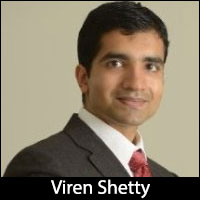
Viren Shetty, senior vice president, strategy and planning, of Narayana Health called for tax breaks for buying health insurance and tax exemptions on equipment purchased for new hospitals with over 100 beds. He said the government should also eliminate the import duty on medical equipment.
“Healthcare should be allotted infrastructure status. The current tax code does not treat hospitals as essential infrastructure and we pay the same electricity tariff and borrow money at the same rate as luxury malls,” he said.
Besides this, the biggest step the government can take to grow the sector is to address the shortage of doctors, nurses and technicians needed to take care of a billion people, according to Shetty.
“We benefit from the largest working age population in the world and we have the resources to train 1 million doctors. The government simply has to convert 100 district medical hospitals into medical colleges at a cost of Rs 50 crore each. With this simple step, India will train enough doctors to heal the whole world,” he said.

Suneeta Reddy, managing director of Apollo Hospitals Enterprise Limited stressed on the need for making health insurance coverage mandatory for all citizens in a phased manner initially covering the organised sector. She said the present annual deduction limit of Rs 15,000 should be enhanced to Rs 50,000 and the current annual limit of Rs 20,000 in respect of dependent parents needs to be enhanced to Rs 50,000.In addition, she called for a policy by all PSU insurers to cover specific health risks of the elderly.
“The government should continue to lay emphasis on preventive healthcare. Given the rising incidence of lifestyle diseases in India and the need to prevent loss of productivity, it is imperative that employers get a separate annual deduction of up to Rs 7,500 per employee once every two years, towards expenses incurred for sponsoring their health check expenses.”
She also said the government could consider extending the minimum prescribed criteria of having a 100 bed hospital for claiming benefit of 150 per cent deduction to a 50 bed specialty centre which is focused on treatment of non-communicable diseases.
Reddy also talked about relaxing the service tax regime on property rentals for hospitals and pharmacies and exemption from the Minimum Alternate Tax (MAT) regime as it negates the benefit of accelerated depreciation for new hospitals.
In addition, she urged for clarity on long-term capital gains under REITs which could aide in creation of more hospitals.
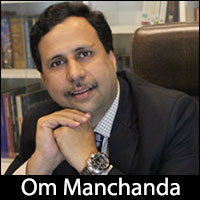
Om Manchanda, CEO of Dr Lal PathLabs, said if the goods and service tax (GST) is imminent the government needs to ensure healthcare is kept out of the ambit of taxes.
“If GST is levied on our kind of services it would be inflationary and increase cost of delivery and be detrimental to public interest. It also needs to reduce customs duties on medical equipment and reagents to reduce/avoid increase in cost of delivery.”
GSK Velu, founder and managing director of Trivitron, said he is expecting the government to look at medical technology as a vital sector and promote Indian manufacturing by removing inverse duty structure, providing fiscal incentives for local innovation and manufacturing initiatives, offering export incentives and creating a medical devices unit under department of pharmaceuticals to promote local innovation/ manufacturing in this import dependent industry.
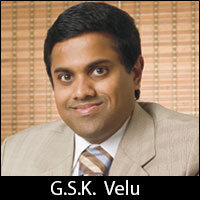
He also called for 15 per cent price preference for medical equipment sourcing from local firms as part of public healthcare purchase. He argued that this is line with what the government anyway follows for World Bank financed tenders.
“The government needs to look at the regulatory framework under Ministry of Health under Indian Healthcare Products Regulatory Authority (IHPRA) built around self certification compliance as per best international regulatory practice & independent of drugs,” he said.

Ameera Shah, MD & CEO of Metropolis Healthcare, said the government should look at being a facilitator of healthcare rather than be a provider and stressed on the need for regulating the fragmented and unorganised diagnostics industry. In addition, she called for easing the tax burden on chemicals, reagents and excise duties on machines and kits.
She also referred to the need for collaboration between the government and the private sector players.
“The emerging concept of PPP is promising. The concept is young and one has to wait and watch to see how PPPs fair in India. Nonetheless with all the successful and failed examples of PPP world over, budget could have a big role to drive PPPs in India,” she said.
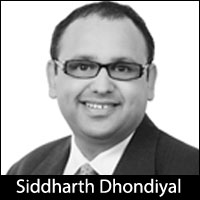
Siddharth Dhondiyal, vice president of India Value Fund, talked about a model to counter the high cost of real estate and said the government should indulge in PPP schemes.
“In medical equipment we have not done a good job as it is very expensive because we import 80 per cent of it. We should be self reliant and manufacture it ourselves. The barrier is technology and we need to provide incentives for domestic manufacturing of medical equipment and also need to work on innovative healthcare technology to build out Indian innovative R&D,” he said.
Dhondiyal also referred to the need for standardisation of medical record online with unique ID system and a strong framework for consumer protection transparency and right to information in the healthcare delivery space.
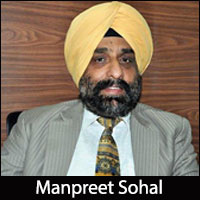 Manpreet Sohal, CEO, Global Hospitals, said the government must take steps to expedite the grant of infrastructure status to the healthcare sector, expand infrastructure for medical education and ease norms for creation of new colleges and centres of excellence for higher medical learning. The Indian hospital industry, which is fragmented with a large number of independent, privately run hospitals and healthcare centres, is witnessing dearth of good doctors and nurses.
Manpreet Sohal, CEO, Global Hospitals, said the government must take steps to expedite the grant of infrastructure status to the healthcare sector, expand infrastructure for medical education and ease norms for creation of new colleges and centres of excellence for higher medical learning. The Indian hospital industry, which is fragmented with a large number of independent, privately run hospitals and healthcare centres, is witnessing dearth of good doctors and nurses.
Additionally, the government should expand the scale and scope of the Rashtriya Swasthya Bima Yojana (RSBY); the budget should have a more futuristic prospect while allocating resource to healthcare sector.
Besides, the budget should not only simply allot bigger numbers to healthcare spending, but should ensure a more regulated spending. Shaping and consolidating fragmented healthcare markets like hospitals is extremely crucial for ensuring better access to quality health care.
(Edited by Joby Puthuparampil Johnson)